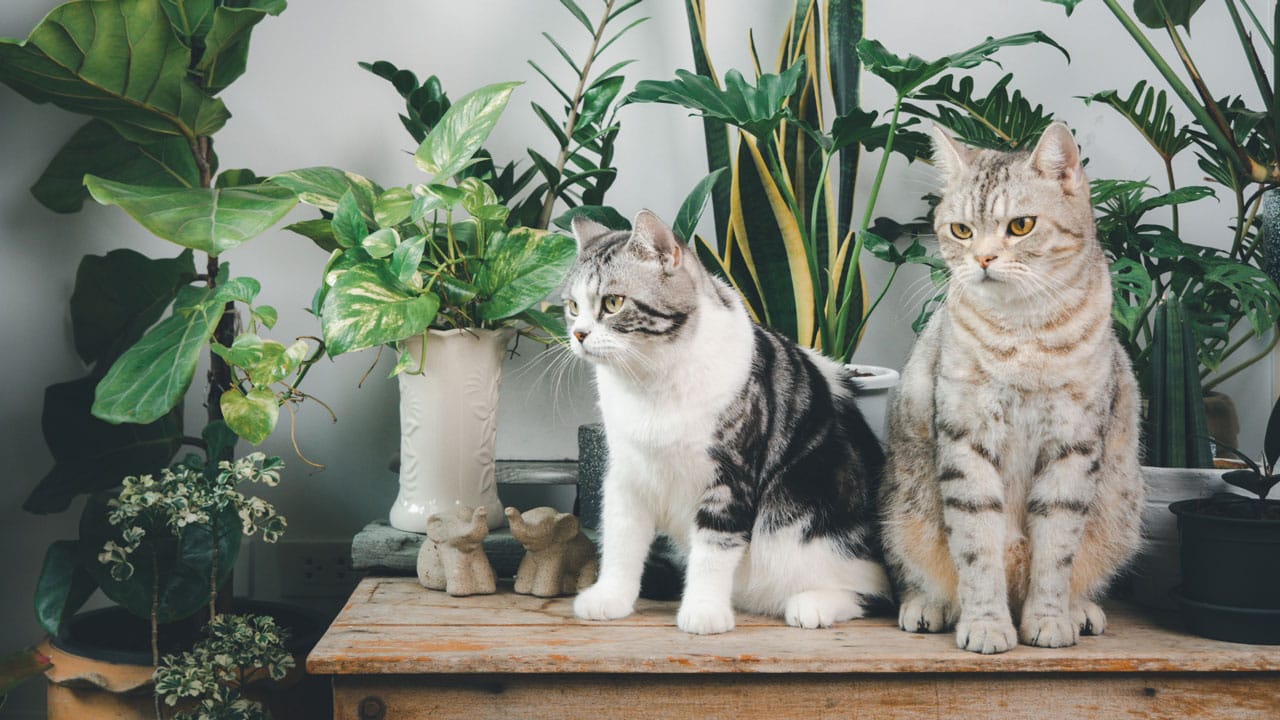Cats are curious creatures, and their inquisitive nature often leads them to explore their surroundings, including the plants in your home or garden. Many can be harmless but there are several plants toxic to cats that you need to know to keep them safe against health complications.
- Lilies — Lilies are a common choice for flower arrangements and gardens due to their stunning blooms. However, they are one of the most common plants toxic to cats. Even a small nibble on the leaves, stems or flowers can lead to severe kidney damage and, potentially, kidney failure. Watch out for symptoms of lily poisoning, such as vomiting, appetite loss and increased urination.
- Pothos — Also known as devil’s ivy, pothos is a popular indoor plant due to its low maintenance and air-purifying properties. However, it is another plant toxic to cats as it contains insoluble calcium oxalate crystals. They can cause oral irritation, drooling, difficulty swallowing and gastrointestinal issues. To protect your cat, consider placing pothos plants in areas your cat cannot access or opt for non-toxic alternatives, such as spider plants and hoyas.
- Azaleas — As beautiful as azaleas are, they are extremely harmful to cats. All parts of the common flowering plant are toxic to cats to a fatal degree. Symptoms of poisoning include drooling, vomiting, diarrhoea and heart arrhythmia. If you have azaleas in your garden, make sure your cats can’t access them and be vigilant about any fallen leaves or flowers.
- Sago palm — Sago palms are popular decorative plants but they can be harmful to felines due to a toxin they contain called cycasin. Sago palm poisoning can cause vomiting, diarrhoea, liver damage, neurological issues and even death in severe cases. Ensure that sago palms are not within your cat’s reach, especially if they have a habit of chewing on plants.
- English ivy — English ivy is a popular climbing vine known for its aesthetic appeal. But the plant is toxic to cats due to several compounds it contains, including hederacoside C, which can cause heart problems. English ivy poisoning can also result in breathing problems in felines, as well as gastrointestinal issues.
Plants can bring beauty and freshness to your living space but as a cat owner, you need to know the potential dangers they pose to your furry friend. Place plants toxic to cats in inaccessible areas, keep your cat entertained and give them a healthy diet to ensure their safety and well-being. If you suspect your cat has ingested toxic plants, contact your veterinarian immediately!
Maintain your cat’s gut health with pet food from MfM Australia
One of the reasons cats chew on plants is gastrointestinal distress. To prevent them from nibbling on leaves and stems, choose high-quality cat food from MfM Australia. We supply cat and kitten food with loads of benefits, from helping them to feel fuller for longer to boosting their immune function. Shop our products online or visit our stockists in Australia to purchase the best food for your cats! Doing so can help reduce the need to chew on plants toxic to cats and save them from an expensive and worrying trip to the veterinarian.
For any questions, feel free to contact us — our team will be happy to help!


